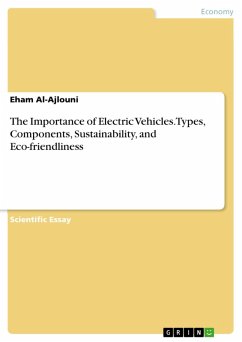Academic Paper from the year 2021 in the subject Economy - Environment economics, grade: 1,3, The FOM University of Applied Sciences, Hamburg, language: English, abstract: Objective of this assignment is to research charging infrastructure requirements, that potentially increase the demand for electric vehicles. The scope of this work will be limited to the German market, except for the overview of the e-Mobility market development. To examine the objective a secondary research of current literature, statistical reports, media and regulations will be performed. First of all, the author will present theoretical foundations to better understand the subsequent chapters, following by an overview of the global e-Mobility market development. Hereafter, the components of charging infrastructure are examined and the current challenges regarding market penetration, following an in-depth research of the charging infrastructure requirements to increase the demand for electric vehicles. Finally, the author will summarize her conclusion and outlook. Climate change, new technologies and less dependence on fossil fuels are major drivers for the development of electric mobility. Electric mobility produces much less CO2, especially when operated using renewable based electricity and therefore seen as key element of the energy transition towards a CO2 neutral environment. In addition, the batteries of electric vehicles (EV) can be used as energy storage to offset fluctuations in solar and wind power. Thus, electric vehicles foster the market integration and expansion of these volatile energy sources. To support and promote research and development of electric vehicles the Federal Government has adopted a set of measures, e.g., the extension of charging infrastructure. The German Government set ambitious goals for the German charging infrastructure. In order to reach this goal, customers must be convinced that an EV is better than the conventional motor type cars. Slowly, but electric vehicles become more visible nowadays. The major current challenges still pose the range of batteries and the charging management. Through digitalization of traffic systems and the increasing automation of mobility in form of autonomous driving cars, the change will be further accelerated.
Dieser Download kann aus rechtlichen Gründen nur mit Rechnungsadresse in A, B, BG, CY, CZ, D, DK, EW, E, FIN, F, GR, HR, H, IRL, I, LT, L, LR, M, NL, PL, P, R, S, SLO, SK ausgeliefert werden.









